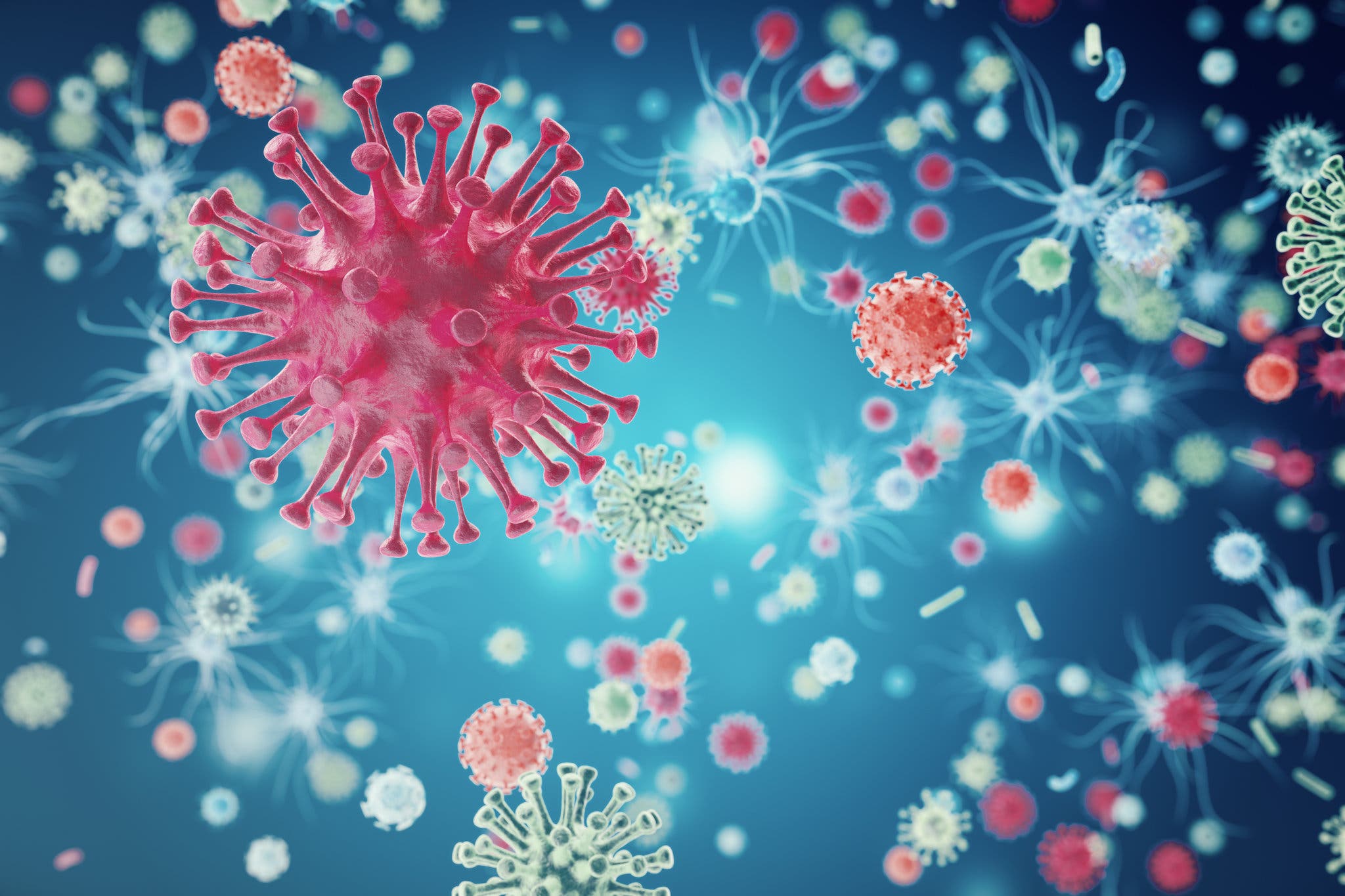COVID-19, RSV, and the Flu Could Be a Triple Threat

Nearly a year after the COVID-19 vaccines were authorized for distribution in the United States, concerns about catching and spreading the coronavirus are prominent. The pandemic is continuing as we near the end of 2021, and the upcoming cold weather months present two new challenges: flu/influenza and the respiratory syncytial virus, otherwise known as the RSV virus.
From symptoms to complications, many are wondering about these three respiratory viruses to look out for in the fall and winter, and how they can best protect themselves and their loved ones. Here’s what you need to know:
All three are viral infections
That means that COVID-19, the flu and RSV are all very contagious. There are additional similarities as well, including the fact that they all affect the respiratory system and see increased cases in the fall and winter. Even with the ongoing battle against COVID-19, it’s believed that in the future, it could eventually fall into more of a seasonal pattern like the flu and RSV.
What signs or symptoms should I look out for?
As expected, the symptoms of COVID-19, the flu and RSV have a lot of overlap. These are some of the most common signs:
- All three are associated with fever and coughing
- COVID-19 and the flu are also known to cause fatigue, headaches, congestion, sore or scratch throat and body aches
- In some cases, those with COVID-19 or the flu also encounter gastrointestinal ailments including nausea, vomiting and diarrhea
And although they share many symptoms, there are some key differences, as well. COVID-19, for example, often causes a loss of taste and/or smell. Meanwhile, RSV can be associated with wheezing.
What complications might I experience?
In some cases, especially those involving patients with known risk factors, complications can arise. COVID-19 can lead to hospitalization and, at times, intensive care treatment and intervention or ventilation. For some, the complications can be fatal.
The flu can also have potentially fatal complications, particularly for high-risk populations like infants, children and older adults. In addition, people who are pregnant, have severe medical conditions or who are immunocompromised should take extra caution. Since 2010, data from the Centers for Disease Control and Prevention (CDC) has shown a range of 12,000 to 61,000 people have died from severe cases of the flu each year.
RSV is a very common disease, and while it typically affects young children, anyone can catch it. And it can be dangerous for infants as well as older adults. Because it affects the lungs and its bronchioles, it can lead to pneumonia and bronchiolitis.
If you or a loved one falls ill with a respiratory infection, the best thing you can do is to monitor symptoms closely and be proactive. If your symptoms don’t improve, or if they worsen, contact your doctor right away. For critical symptoms, like difficulty breathing or a spiked fever, come to the emergency room.
How do doctors test for respiratory infections?
After evaluating your symptoms, there are several testing options a doctor can choose. It’s likely that you’ll have a swab test to diagnose your sickness and prescribe the appropriate treatment.
What does treatment look like?
In many cases of COVID-19, patients are able to treat the illness at home with rest and fluids. For some, however, doctors might order monoclonal antibodies, which require a prescription and are given by IV. These laboratory-made antibodies mimic our bodies natural response, and can reduce the presence of the virus in the body. As a result, they may help a patient avoid severe complications, hospitalization and even death. In order to be effective, these must be given soon after the onset of symptoms.
The flu also starts with rest and hydration. Some antiviral medications, like Tamiflu, can also be effective – particularly if they’re taken within 48 hours of your first symptoms. Factors like your age, severity of symptoms, other medications and medical conditions can affect which treatment is recommended for you. Of course, your doctor can discuss each options’ risks and benefits.
Treatment for RSV is influenced by the severity of the infection. Mild cases typically resolve themselves within a week or two, and it’s likely that your doctor will recommend a fever-reducing medication along with rest and fluids. Severe cases can lead to hospitalization, IV hydration, oxygen and even ventilation.
Is there anything I can do to lower my risk of contracting these illnesses?
Fortunately, because these three infections share a lot of similarities in terms of transmission and symptoms, a few best practices can greatly lower your chances of contracting them:
- Wear your face mask, especially indoors
- Wash your hands frequently, using soap and warm water
- Cover your mouth and nose when you cough or sneeze
- Social distancing
- Avoid contact with those who are sick
Immunization continues to be one of the most recommended prevention methods. While RSV doesn’t have a vaccine, there are immunization shots available for both the flu and COVID-19. These vaccines have been proven effective at reducing your chances of severe illness, hospitalization and death. The COVID-19 vaccine is free in the U.S. and for those with health insurance, the flu vaccine is typically free at your doctor’s office and pharmacies. If you don’t have health insurance, many areas have community health clinics that offer free flu shots, so take a look for one near you!
The fall and winter season can certainly pose challenges to staying well, but by being informed and implementing these prevention methods, you’ll help ensure a healthy season ahead.
